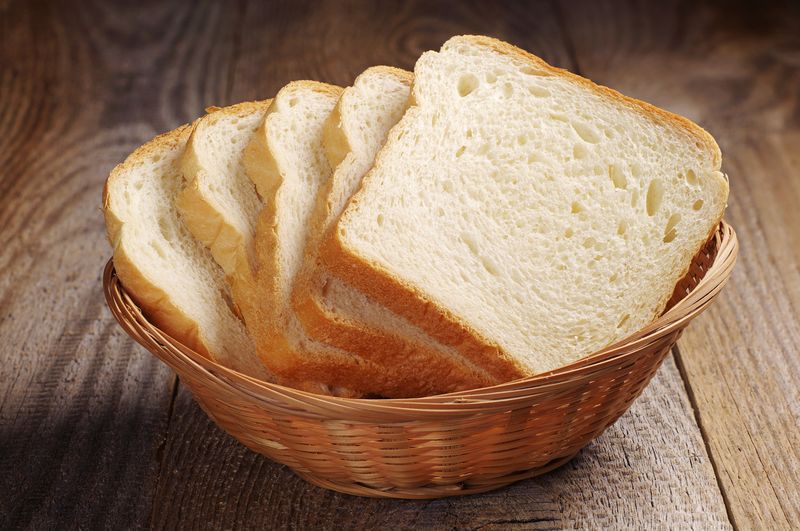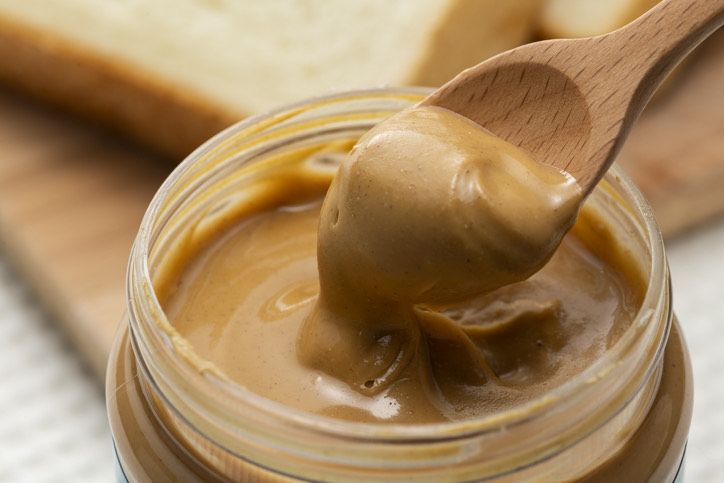Jakarta –
The refrigerator is always relied on to store food, but not all food ingredients are suitable to be stored in it. Avoid storing these 10 food ingredients in the refrigerator.
It seems to be the habit of many people to store any food in the refrigerator. But in fact, not all food is suitable to be put in the refrigerator.
Quoting Delish, storing certain foods in the refrigerator can reduce product quality. Instead of storing it in the refrigerator, store food in a safe place and separate from other food.
ADVERTISEMENT
SCROLL TO CONTINUE WITH CONTENT
The following is a list of foods that should not be put in the refrigerator, citing Reader’s Digest and Martha Stewart’s page.
 It is never recommended to store white bread in the refrigerator. Photo: Getty Images/iStockphoto/SasaJo It is never recommended to store white bread in the refrigerator. Photo: Getty Images/iStockphoto/SasaJo |
1. White bread
Bread should be eaten as soon as possible before the ‘best before’ date usually stated on the packaging. However, many people store bread in the refrigerator to extend the life of the bread.
In fact, the cold air produced by the refrigerator makes the bread lose its soft texture and dry out even more.
However, the case is different with homemade bread. You can store bread in the refrigerator for a while to prevent mold growth.
2. Chocolate
Chocolate is best consumed when the texture is not soft. It’s no wonder that most of us put chocolate in the refrigerator before consuming it.
Unfortunately, this method actually causes the sugar in the chocolate to move to the surface.
The transfer of sugar to the surface causes thin white spots to appear on the chocolate. However, chocolate in this condition is still safe to eat.
Instead of the refrigerator, store chocolate in a cool, dry area. Keep chocolate away from direct exposure to sunlight and hot temperatures.
3. Garlic and onions
Whole, uncut garlic will soften and sprout quickly in the refrigerator.
Meanwhile, onions will be affected by the cold temperature of the refrigerator. The starch in onions can turn into sugar.
Store garlic and onions in a cool, dry place.
4. Potatoes
Cold temperatures cause potato starch to turn into sugar. Potatoes have a sweet taste and their texture can change when cooked.
Store potatoes in a ventilated container such as a cardboard box and away from direct light to prevent sprouting.
5. Coffee beans
Get the coffee out of the refrigerator right now. Moisture in the refrigerator causes coffee beans to spoil. This means that it is difficult for coffee beans to produce a fresh and strong taste.
Refrigerator doors that are frequently opened and closed can also create condensation. This causes humidity to soar high.
Store your coffee beans in an airtight container in the kitchen.
 To maintain its quality, peanut butter is best stored at room temperature. Photo: Getty Images/iStockphoto To maintain its quality, peanut butter is best stored at room temperature. Photo: Getty Images/iStockphoto |
6. Peanut butter
The peanut butter you buy at the supermarket may contain emulsifiers and preservatives. This content can improve the quality of peanut butter at room temperature.
Don’t store peanut butter that you buy at the supermarket to maintain its quality.
However, if peanut butter is made homemade without preservatives, it must be stored in the refrigerator. Peanut butter without preservatives can develop a rancid aroma and grow mold.
7. Honey
This sticky and sweet food should not be put in the refrigerator. Cold temperatures cause honey to harden and crystallize.
The ideal place to store honey is room temperature.
8. Avocado
Don’t let ripe avocados be stored in the refrigerator. Ripe avocados should be consumed immediately. Or, you can store avocados at room temperature.
9. Cucumber
Cucumbers stored in the refrigerator will experience ‘chilling injury’ or spots, shrivel and turn yellow after three days or more.
If you want cold cucumbers, wrap them first in plastic wrap to minimize moisture and eat them as quickly as possible.
10. Cookies
The temperature of the refrigerator causes cookies to become damp, become brittle, and affect the taste.
Store cookies in a closed container for up to three weeks, depending on the type.
This article was published on CNN Indonesia with the title “Take note, these 10 foods should not be stored in the refrigerator”
(dfl/adr)






